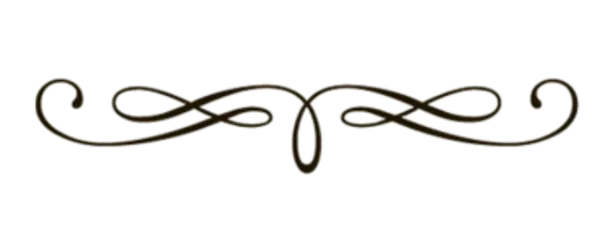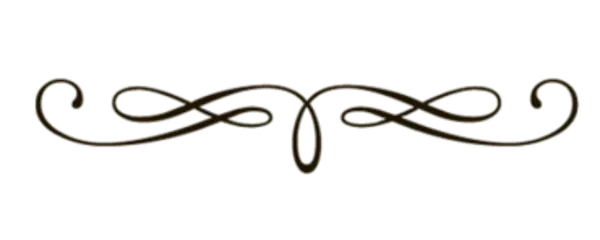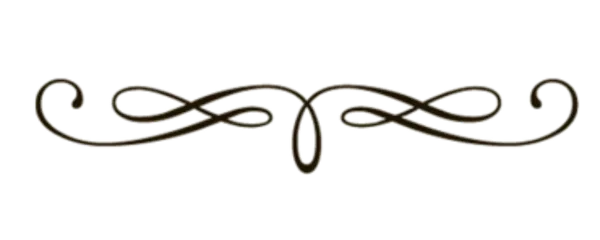As He often does, God stopped me in my tracks as I began trying to write a piece on overstimulation, information overload, and overall, just how over, not only myself but many others are of the noise that is inundating the world at large.
Although this is a subject that I want to look into still, I won’t be detailing this article with stastistics, graphics, and more like I was planning on. Mainly because that sort of defeats the whole point of why I wanted to write the piece in the first place. Although I think data and research have their place, I didn’t want this article to just turn into some psychological roast where I air humanity’s issues and have a call to action for all of us to get our stuff together.
It’s not about offering self-improvement more than it is coming back to the whiteboard and challenging ourselves to look deeper than what lies on the outside of what our culture likes to label convenience, effciency, and comfort.
I’ve been on a solo trip the past few weeks, my first I’ve ever taken. One of the experiences I immediately felt was that of the quiet pressing in all sides. It seemed too quiet, and that’s coming from an INFJ introvert, a.k.a somebody who treasures quality alone time before practically anything (or anyone) else.
Gradually my body became used to the quiet, the slowness that comes with getting away from the wildness of everyday living, and embracing an area where most of the population are sweet retired folks.
Community back home was greatly missed, yet the quiet became a secret place for me—a hiding place. There was solace going on long walks with God, wandering in His world without much of a destination in mind, while chatter was not thought of since I did not have a companion.
If any of you are familiar with Sally Lloyd-Jones’ The Jesus Storybook Bible, you’ll either unite with me in saying that I think it is a wonderful primer for the Scriptures or maybe you’ll disagree with me because it leaves too much out. One thing that I have loved, reading through the simplistic biblical narratives, has been the repeated pattern of Jesus being the epicenter of each one. The other day I was reading Noah’s Ark, and began to consider the ark in conjunction with a song that I’d recently been listening to whose theme was, no surprise, Noah’s ark. For some reason that image connected with my continual puzzle I’d been laying out in my mind that revolved around this idea of quiet and a ‘less is more’ mentality.
Drowning in all this noise called ‘life’
Truth is, modernity, transhumanism, and the toppling of beauty is upon us. None of us should give up the fight for the True, Good, and Beautiful which are virtues that transcend time and mortality. However, there is something to be said in retreating and protecting our sanity when the waves get too tall out there and we need somewhere to retreat that is safe. In fact, perhaps creating a haven that is sacred, held aloft from the chaos that life often becomes, especially with all of the gross additives—both literally and figuratively—thrown into the 21st century is something we ought to consider. There could be articles and articles written on this topic in depth, and maybe we’ll explore more later on.
Frankly I think there needs to be light thrown on the fact that we don’t desire quiet enough, not that we don’t know how to craft a practice of regular quietude and contemplation. Before there’s talk of creating, there has to be a revealing of what needs to be torn down or removed.
All of us have felt burnout, overwhelm, stimulus that cannot be ignored any longer because it presses in around us so strongly. Whether that be an overcrowded department store during the holidays, shelves packed haphazardly with discounted product that didn’t sell elsewhere and Spotify playlists blaring in the background, or a restaurant with literally ten tvs all broadcasting different forms of entertainment, meanwhile every table is full of people attempting to not only be heard over the televisions but also the chosen music pumping through speakers everywhere.
Or,
the reverse happens.
We can’t hear anything anymore.
I don’t mean just the physical sense kind, although selective hearing is real—ask any mother out there who has more than one child.
For more sensitive folks out there, who don’t particularly chase the extraverted party life like its a lifeline, I think we are the ones who must be willing to open conversations where lives ruled by overstimulation is called into question, for the good of where humanity is headed. Otherwise, God will get lost in the chaotic waters we are adrift on. Some talk about the amount of decision-making that happens everyday and indeed the needless pressure that accompanies many of those decisions should happen in our circles, regardless of what circles those are.
Actually though, I don’t think that its particularly anyone’s fault for the noise smothering out any real matters of import—well, let me clarify: not any layman’s fault.
There are those who would desire to rob of us of our precious quiet for malicious and ill-intended reasons, and those I would like to label as Titans of Industry.1
These are the men and women (mostly men, as of 2018)2 who have forged ahead in this world of fast-pace change and so called ‘improvement’. Better this, better that, everything is better with the newest, the latest, the gadget that does it all in record time.
In some cases, its real handy to have ways that we can outsource, simplify, or reduce workload through certain technologies, whether that be washing clothing via machine, typing rather than handwriting, or some other example.
What I’m not a particular fan of is the aim that all of these advertisers (more like adversaries), promoters, big businesses, and virutually every. single. field has now: that is to distract us into oblivion where we can no longer make sound decisions based on our own thought trains, logic, and intuition because there isn’t time nor space for any of those three tools.
In full transparency I’ve found this to be the case in my own life. When there is an army of ‘voices’—literal voices from others, podcasts, lifestyle writing, endless collections of music, etc.—I find that insightful decision-making is almost impossible.
As a nation in America, we are sailing with the winds of Who Can Make the Most Money Off of These Naive People’s Short Attention Spans and Comfort-Centric Worlds?
Because the truth is, we are too comfortable running from confronting the man in the mirror. There is a difference between a rumination, a pitying of the self, and searching the soul that is inside each man and woman, searching to know who we are in light of the Divine. The trouble is that very few of us desire to delve deeply with the intention of evaluating honestly, if not objectively.
And that is the aim of these corporations, mass produced technologies, and time-wasters. I don’t think I would be called a wild conspiracy theorist to say that their desire is to keep the people from seeing farther than their nose. This is the case with politics, corrupt religious organizations, and big business. 1984, Brave New World, Farenheit 451, Animal Farm, and other such classics delve into this theory through story, but they all seem to have a common thread: in order to prevent uprising, the elimination of free thinking must be top priority. I’m here to make the case that perhaps the elimination of free thinking begins with the elimination of an environment that allows for thinking freely. To actually think through anything, humans must have ample time, space, energy, and the mental fortitude in order to tackle difficult topics that take more than five seconds to come up with an answer. Rumination, or battling with ideas that take time to digest and come to a suitable conclusion (if there is one) is not a task easily undertaken, and even less so in a world that moves at record speed.
The meaning of yâshab and nurturing our floating gardens
Yâshab (yaw-shav') is a Hebrew word, used, for my purposes today specifically, in Psalm 23 and 91 as well as Genesis 4:16.
Another relevant word, sēṯer, appears also in Psalm 91 and 81.
Yâshab translates to ‘to dwell’ and ‘remain’, where sēṯer translates to ‘secret place’ or ‘hiding place’.
Yâshab appears in Psalm 23v6, the last line—
And I will dwell in the house of the LORD forever.
As well, it makes it’s drawn upon in Psalm 91v1—
He who dwells in the secret place of the Most High
Shall abide under the shadow of the Almighty.
Conversely, yâshab is used in Genesis 4v16—
Then Cain went out from the presence of the Lord and dwelt in the land of Nod on the east of Eden.
‘Nod’ means ‘wandering’. Cain left the safety of dwelling in the presence of the Lord, and he went on to build a city that represented his rebellion and subsequent distancing from God (Gen. 4v17)—a city that was the beginning of human industry and urbanization.3
It also serves as the Hebrew verb for ‘remain’, an example being in 1 Samuel 23v14,
And David stayed in strongholds in the wilderness, and remained in the mountains in the Wilderness of Ziph. Saul sought him every day, but God did not deliver him into his hand.
Then there’s our second Hebrew verb.
Sēṯer is a word closely related to the topic and to it’s Hebrew sibling yâshab. Sēṯer is found when we look at this passage in Psalm 91v1 also—
He who dwells in the secret place of the Most High
Shall abide under the shadow of the Almighty.
In Psalm 81v7, it’s use is also translated into English as ‘the secret place’—
You called in trouble, and I delivered you;
I answered you in the secret place of thunder;
I tested you at the waters of [b]Meribah. Selah
In the negative sense, Deuteronomy 32v18 utilizes sēṯer—
He will say: ‘Where are their gods,
The rock in which they sought refuge?
Who ate the fat of their sacrifices,
And drank the wine of their drink offering?
Let them rise and help you,
And be your refuge.
Again, in Deuteronomy 27v15—
‘Cursed is the one who makes a carved or molded image, an abomination to the Lord, the work of the hands of the craftsman, and sets it up in secret.’
Before I tie up all of these strands, there’s another biblical allusion I need to bring up, in order to make this picture complete.
Remember when I brought up The Jesus Storybook Bible and Noah’s ark? It just so happens that the ark symbolizes God Himself, or rather, His presence. There is an entire Classroom episode given by Tim Mackie you can go and listen to that delves into this topic4, but there’s unfortunately not time now.
Citing Genesis 7v1,
Then the Lord said to Noah, “Come into the ark, you and all your household, because I have seen that you are righteous before Me in this generation.
From the way that the verbiage here is positioned, seemingly the Lord already dwelt in the ark, and He was welcoming His chosen people into the safety of that place, His presence being the primary source of security and rest amidst the chaotic floodwaters.
Not only did the Lord’s presence permeate the ark, but the ark was a symoblic representation of the Garden of Eden and a prototype of the tabernacle5—the bona fide dwelling place of God in Old Testament literature.
As I’ve discussed numerous times in other parts of my work, Eden represents a place where God’s ruakh, his spirit, dwelt (or tabernacled) with humans unfettered. There was no evil or sin that divided Divinity and humanity. It was a place of peaceful refuge and wholeness. When you imagine a lush garden, words like healing, wholeness, growth, restoration, etc. come to mind, don’t they? The Eden narrative reveals this to be true. Eden was the pinnacle of Heaven on Earth—literally.
Look, if this all seems a little wacky, feel free to research and I’d love to hear your take. Listen in to that Bible Project classroom episode. Maybe I’m connecting dots that aren’t there—I’ve been known to do it. But for the sake of hearing me out, let me sum this Noah strand for you.
Noah’s ark was essentially a floating garden or tabernacle, as both gardens and tabernacles can symbolize the same concept: God’s presence as an everlasting, healing, and peace-giving refuge. This was how the ancient readers of the Torah would have read and understood the ark to represent.
The storms we weather in this life can be subtle until they turn into chaotic flood monsters that threaten to overturn our normal. But there are those little devils that remain behind the scenes, slowly toying with God’s image-bearers until we’ve ‘progressed’ from where we were meant to be and left behind what it means to be truly human. Part of that so-called progression is the elimination of quiet. Not only quiet, but more importantly, the ability to sit in silence and meditate on what life really means, what lies behind the material curtain that we are so easily satisfied to hide behind.
In the mechanical flood we are all facing, there is hope. Hope is represented by yâshabing in our sēṯer’s, or dwelling in our secret places.
So much of today revolves around this concept that social media has bred into Gen Z’s very DNA: if it wasn’t publicized, it didn’t happen.
That is a lie.
There’s a time and a place for battle. A call has been laid on sensitive, introverted, quiet dwellers to stand up for the ‘lesser virtues’ and revive them in a world that is postively drowning in noise.
Maybe part of the battle, though, is not necessarily what we do but rather the life we are choosing to cultivate. Saying no to the transient, the fast, the easy, and the efficiency machine are all marks of a quiet-minded individual. Saying no to distractions and paying attention to what’s inside, no matter how much pain it may cause in the interim brings a life of rich soil, where seeds can grow that, when watered by constant attention, will bring fruit that cannot be depleted by a short attention span or desires that ebb and flow.
We can choose to grow a little Eden of our own, just by paying attention to and abiding in the quiet.
As varied and unique individuals, there’s not a formula to that, and I’m not here to give a presentation to you on one. But as I mentioned previously, the desire for a life that blooms from healing silence and contemplative thought has to be reawakened before the West can decide how to bring it back.
When life becomes too loud, I want to choose the hiding place that is offered by the wings of my Heavenly Father. There is shelter to be found when trials become a fearsome ocean that threatens the life I’ve built.
Something I’ve been learning is that it’s okay to hide sometimes.
Neither you or I need to carry it all on our shoulders all the time. The Hero’s cap has to be dawned at times, but there’s room to rest in a quiet place where the Rescuer covers us.
Grief, heartache, pain, or loneliness all have their place in the human experience, and in those times, we climb into our sacred arks and experience the holiness and glory of a God who can and will overcome, but also meets us where we sit in the hurt.
Sometimes, it’s okay to walk away from it all, for a time. But how do we craft a life that emanates silence? Not silence for silence’s sake, but silence that leads to a life made richer taking in the beauty of thought, everyday life, and conversations that lead to meaningful relationships.
This is what I’ll pose as a round off, and wish everyone who celebrates Thanksgiving, a happy happy one.
I borrowed this idea from Colin Meloy who wrote a middle-grade/YA trilogy by the name of The Wildwood Chronicles. It’s a brilliant little series harkening to Narnia, or The Wingfeather Saga in some respects. Meloy touches on environmental issues, family, found family, and friendship all while writing in a way that is enchanting. I higly recommend reading this yourself. Here’s the link for the boxed set on Amazon.
Pew Research has an article on this. I find it valid to point this out not because of some liberal agenda or because men are the world’s problem, but mainly because I think men have a responsibility to care for and concern themselves with the little, the meek, and the weak. The manipulation, intentional advertisement propaganda, and stealing of peoples’ most precious resources—namely attention, emotional capacity, and physical wealth—is a poor way to be a defender, which is a large component of the role of a man. Men naturally have more command and leadership-like tendencies and so, have more opprtunity and responsibility to look out for society especially if they are CEOs of major American distributers, corporations, or industrial industries. Women have their place, too, but that’s another article for another time. For the purposes of this piece I see it as necessary to point out this detail.
https://enduringword.com/bible-commentary/genesis-4/ — taken from David Guzik’s commentary. This is the direct longer quote: “And he built a city: Here we see the beginning of industry and of urbanization (emphasize mine). From this beginning, it was strongly man-centered (and called the name of the city after the name of his son), not God-centered. The fall of the human race continued and even increased.”








